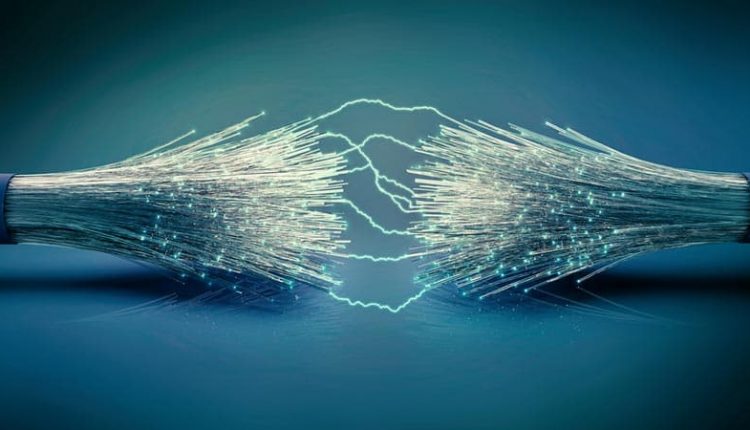Government Raises Concerns Over Fiber Optic Security, Recommends Dark Fiber for Enhanced Data Protection

In a significant development, the federal government of Pakistan has expressed concerns regarding the security of internet services provided through third-party fiber optics. As a result, the government has taken measures to address these concerns and ensure the safety and integrity of sensitive data.
To address the potential risks associated with data transmission, the government has issued a circular to all its departments, provinces, federal ministries, and divisions. The circular emphasizes the adoption of “dark fiber” as a more secure alternative for data communication and transmission.
The circular sheds light on the prevalent reliance of government departments and institutions on private fiber optic networks for internet connectivity. However, it raises valid concerns regarding the potential vulnerabilities and risks associated with utilizing such connections, including data theft and unauthorized access.
Of particular concern is the vulnerability of data when transmitted through optical fiber connections, prompting the government to seek alternative solutions to enhance security and privacy.
In response to these concerns, the circular strongly recommends the adoption of “dark fiber” as a viable solution to significantly reduce the risk of data theft and unauthorized access. Dark fiber refers to unused or unlit optical fiber infrastructure that can be exclusively dedicated to private and secure data transmission. By leveraging dark fiber connections, the government aims to bolster the security and confidentiality of critical information exchanged over the internet.
This proactive approach taken by the federal government underscores its commitment to safeguarding sensitive data and ensuring the integrity of communication channels. By promoting the use of dark fiber, the government seeks to mitigate potential security risks associated with third-party fiber optics and reinforce the protection of crucial government information.
Implementing dark fiber solutions offers numerous advantages, including enhanced data security, reduced vulnerability to cyber threats, and greater control over network infrastructure. By utilizing dedicated dark fiber connections, government entities can create a more secure environment for the exchange of sensitive information, reducing the potential for data breaches and unauthorized access.
Furthermore, the adoption of dark fiber aligns with global trends in data security and privacy. Many countries and organizations are increasingly recognizing the importance of fortified data transmission channels to protect against evolving cyber threats and safeguard critical information.
The government’s proactive stance on this matter reflects its commitment to ensuring the secure transmission of sensitive data and upholding the principles of data privacy. By recommending the use of dark fiber, the government aims to instill confidence in citizens and stakeholders, assuring them that their personal and sensitive information remains secure during official communication.
Moving forward, it is expected that government departments and institutions will gradually transition to dark fiber infrastructure to bolster data security and protect against potential vulnerabilities. This transition may involve collaborating with industry experts and service providers to implement robust dark fiber solutions tailored to the specific needs of each department.
